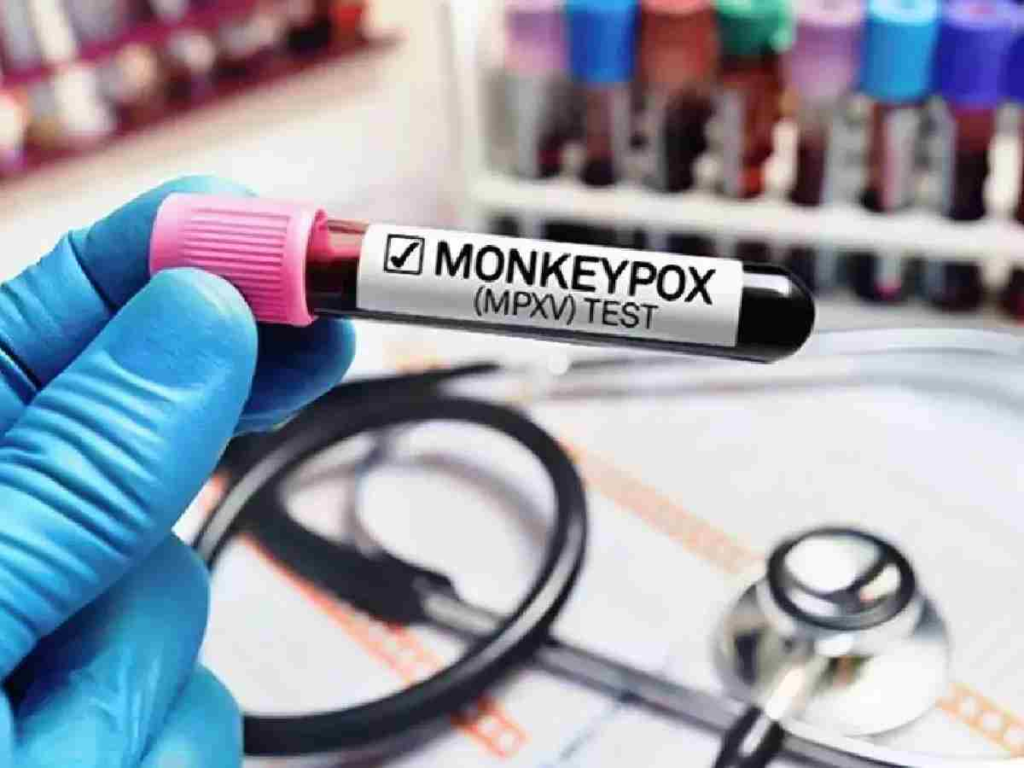Introduction
On September 10, 2024, Delhi witnessed its first confirmed case of mpox, a viral infection that has been making headlines globally. The Delhi Health Minister, Saurabh Bharadwaj, swiftly addressed the situation, assuring the public that there is no cause for panic. The patient, a 26-year-old male, is under careful observation at LNJP Hospital. This article delves into the details of the case, the health ministry’s response, and the measures being implemented to manage the situation.

Health Minister’s Reassurance and Immediate Response
Delhi Health Minister Saurabh Bharadwaj conducted an unannounced inspection of LNJP Hospital to assess its readiness for dealing with mpox and other health concerns such as dengue. During his visit, he emphasized that the situation remains under control and urged the public not to panic.
“There is one confirmed case of mpox at LNJP Hospital. The patient is stable and has been isolated in a separate ward,” Bharadwaj reported. He highlighted that the infection spreads through direct contact with lesions or bodily fluids, not through the air, which reduces the risk of widespread transmission.
The minister’s reassurance comes amid growing concerns following the patient’s admission. Bharadwaj’s proactive approach is aimed at preventing unnecessary alarm while ensuring that the healthcare system is prepared for potential challenges.
Patient’s Condition and Hospital Preparedness
The patient, a 26-year-old resident of Hisar, Haryana, was admitted to LNJP Hospital on September 7, 2024. He is reported to have only genital ulcers and skin rashes, with no accompanying fever or severe symptoms. According to health officials, the patient likely contracted mpox during recent travels abroad.
LNJP Hospital, one of Delhi’s primary government hospitals, has been designated as the nodal facility for managing mpox cases. The hospital is equipped with 20 isolation rooms, 10 of which are specifically reserved for confirmed cases. The facility has also ramped up its preparedness to handle any potential rise in cases, with additional isolation rooms available at Guru Teg Bahadur (GTB) Hospital and Baba Saheb Ambedkar Hospital.
Union Health Ministry’s Statement and National Context
The Union Health Ministry has described the current mpox case as an “isolated incident” with no immediate risk to public health. The ministry confirmed that the patient, who had recently traveled from a country with ongoing mpox transmission, is in isolation at a designated tertiary care facility. The official statement noted that the patient is clinically stable and without any systemic illness or comorbidities.
This case comes at a time when the World Health Organisation (WHO) has declared mpox a Public Health Emergency of International Concern (PHEIC) due to its prevalence in several regions, particularly in parts of Africa. The WHO’s declaration underscores the need for heightened vigilance and international cooperation to prevent further spread.
Government and Healthcare Sector Actions
In response to the mpox case, the Delhi government and healthcare authorities have implemented several key measures:
- Enhanced Screening Protocols: Increased screening efforts are underway across hospitals and healthcare facilities to quickly identify and isolate any additional cases.
- Public Awareness Campaigns: The government is launching campaigns to educate the public about mpox, its transmission, and preventive measures to avoid panic and misinformation.
- Hospital Coordination: LNJP Hospital, along with GTB and Baba Saheb Ambedkar Hospitals, is coordinating to ensure all facilities are adequately equipped to handle mpox cases.
Timeline of Events
- September 7, 2024: A 26-year-old male from Hisar is admitted to LNJP Hospital with symptoms of mpox.
- September 9, 2024: Delhi Health Minister Saurabh Bharadwaj conducts a surprise inspection of the hospital to evaluate its preparedness.
- September 10, 2024: Minister Bharadwaj reassures the public about the low risk of widespread transmission and outlines the government’s response.
Expert Opinions
- Dr. Anil Sharma, Epidemiologist at AIIMS: “The presence of an isolated case of mpox should not be a cause for alarm. With effective isolation and treatment, the risk of a larger outbreak can be minimized.”
- Dr. Priya Singh, Infectious Disease Specialist: “Mpox is a serious condition but can be managed with proper medical care and hygiene practices. Public education is crucial to preventing further cases.”
- Dr. Ramesh Patel, WHO Representative: “Global cooperation and local health measures are essential in managing mpox. The current response in Delhi is a good example of effective public health management.”
Conclusion
The confirmed mpox case in Delhi has prompted a series of well-coordinated responses from health authorities. Minister Saurabh Bharadwaj’s reassurance, coupled with the hospital’s preparedness and the Union Health Ministry’s statement, underscores the commitment to managing the situation effectively. The proactive measures being taken aim to prevent the spread of the virus and ensure public safety.
For Regular News and Updates Follow – Sentinel eGazette
FAQs:
- What is mpox and how is it transmitted?
- Mpox is a viral infection characterized by symptoms such as genital ulcers and skin rashes. It spreads primarily through direct contact with lesions or bodily fluids of an infected person, not through the air.
- What measures is Delhi taking to manage the mpox case?
- How serious is the mpox outbreak in Delhi?
- The outbreak in Delhi is currently considered an isolated case with no immediate risk of widespread transmission. The patient is in stable condition and under strict medical supervision.
- What precautions can the public take to avoid mpox?
- To prevent mpox, individuals should avoid direct contact with lesions or bodily fluids of infected persons, maintain good hygiene practices, and follow public health guidelines.
- Where can I find more information about mpox?
- For more information about mpox, you can visit the World Health Organisation (WHO) website or consult local health department resources.